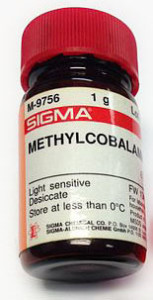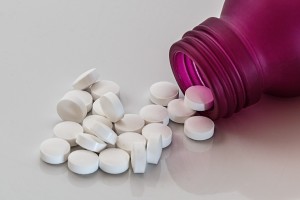 Histamine and Heartburn
Histamine and Heartburn
Many people with histamine intolerance regularly take medications to control heartburn.
Histamine acts to increase hydrochloric acid secretion by cells in the stomach lining. An overload of histamine can cause the production of excess stomach acid, which is why one of the treatments for heartburn is the H2 antagonist Rani-tidine (TM)*.
Panto-prazole* is another drug for heartburn patients that decreases the amount of acid produced in the stomach. The problem is, long-term treatment with panto-prazole* may also decrease the body’s ability to absorb vitamin B-12, resulting in a deficiency of this vitamin.
Vitamin B12 Deficiency
Vitamin B12 (cobalamin) is an essential vitamin, required for DNA synthesis (and ultimately cell division) and for maintaining nerve myelin integrity.
Symptoms of a vitamin B-12 deficiency may develop slowly and include pale skin, weakness, tired feeling, shortness of breath, and a fast heart rate. Vitamin B12 deficiency can potentially cause severe and irreversible damage, especially to the brain and nervous system. When levels of B12 are only slightly lower than normal, they can lead to a range of symptoms including fatigue, depression and memory loss.
Foods richest in Vitamin B12 may cause problems
Foods richest in Vitamin B12 include shellfish, liver, fish, crustaceans, fortified soy products, fortified cereals, red meat, milk, cheese and eggs. Most of these foods are also high in histamine, and are best avoided by people with histamine intolerance. Fortified cereals are processed foods with B12 (not methyl B12) added to them by the manufacturer.
Problems with Vitamin B12 absorption
Furthermore, not everyone is able to absorb Vitamin B12, even if they eat foods that contain it. The human physiology of vitamin B12 is complex, and therefore may go awry, leading to B12 deficiency.
Health conditions that may lead to poor B12 absorption include:
Atrophic gastritis (thinning of the stomach lining)
Pernicious anemia
Surgery that removed part of the stomach or small intestine, including weight loss surgery
Conditions affecting the small intestine, such as Crohn’s disease, celiac disease, bacterial growth, or a parasite
Heavy drinking
Immune system disorders, such as Graves’ disease or lupus
Long-term use of acid-reducing drugs, e.g. Panto-prazole*
A strictly vegan diet
A vegetarian diet that does not include enough eggs or dairy products to meet vitamin B12 needs
Advanced age
Cyanocobalamin is synthesized using cyanide
One way to combat Vitamin B12 deficiency is to take supplements. However, most Vitamin B12 supplements are in the form of cyanocobalamin rather than methylcobalamin.
Cyanocobalamin is artificially synthesized in laboratories. One of the main ingredients is potassium cyanide – yes, you read it right – cyanide, the well-known poison. Cyanocobalamin is the form used in most pharmaceutical preparations because adding cyanide stabilizes the molecule.
When we ingest cyanocobalamin, we are being exposed to small amounts of cyanide.
Methylcobalamin is more easily absorbed
Furthermore, cyanocobalamin is harder for our bodies to metabolize than methylcobalamin. Many people with histamine intolerance are, without being aware of it, ‘undermethylators’. Undermethylation, or ‘histadelia’, is an inherited condition characterized by elevated blood levels of histamine.
If our bodies cannot properly methylate vitamin B12, they cannot adequately absorb it. Methylcobalamin is already methylated, and thus more easily assimilated into the body.
If you are histamine intolerant – or even if you’re not – the optimum way to make sure you’re not Vitamin B12 deficient is to take methylcobalamin. It is available from pharmacies as pleasantly-flavored pills or drops, to be dissolved slowly under the tongue.
*Note: Our web host, WordPress, appears to block certain brand names and drug names such as Rani-tidine(TM) and panto-prazole, unless they are hyphenated.

 Histamine and Heartburn
Histamine and Heartburn If your histamine intolerance symptoms are extremely severe, then in addition to adhering to the
If your histamine intolerance symptoms are extremely severe, then in addition to adhering to the  Don’t panic about gluten!
Don’t panic about gluten!
